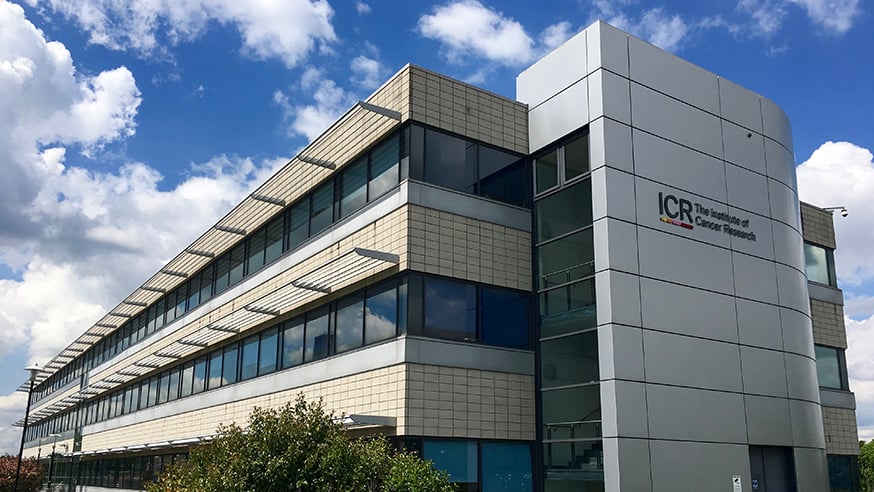
Image: Sir Richard Doll building in Sutton.
The Institute of Cancer Research, London, is now the most successful higher education institution in the UK at earning invention income from its research.
The ICR's intellectual property income was more than £64 million for the academic year 2015/16, far surpassing the second-placed University of Cambridge, which earned around £19 million.
This success was highlighted by the Universities and Science Minister, Jo Johnson, as an example of how the UK's higher education sector can generate income from its discoveries.
In a speech to the Higher Education Funding Council for England (HEFCE), Mr Johnson praised "the £64m that The Institute of Cancer Research made from licensing last year" as an example of a British success story, adding that he wanted such examples to become more common across the sector.
Top of the list
Compiled as part of HEFCE’s annual Higher Education Business and Community Interaction (HE-BCI) survey, the figures show the scale of the ICR’s achievement.
The ICR alone accounted for over a third of last year's total of £176 million intellectual property income for UK universities.
We also earned around £40m more than in 2014/15, and were solely responsible for the sector-wide increase of the same amount.
While this is the first academic year that the ICR has topped the list outright, we have for some years been the highest earner when adjusted for our size – we are much smaller than other organisations on the list.
Importance of industry partnerships
The prostate cancer drug abiraterone, which was discovered at the ICR, accounted for a large proportion of last year's income, but we also earned significant amounts from several other sources, including royalties and milestone payments from drug and non-drug programmes and new commercial agreements.
These interactions with commercial partners are led by our Enterprise Unit, which helps us regularly to top UK and international league tables for knowledge exchange – the sharing of ideas and discoveries between universities, companies and the public for economic and societal benefit.
Over the same 2015/16 period, the Unit was involved in putting in place more than 20 new industry collaborations, including in imaging technology, 3D cell cultures, drug development and gene profiling technology.
They also filed patents in drug discovery, X-ray technology and magnetic resonance imaging, and concluded several hundred agreements relating to clinical trials.
Our new quarterly newsletter, Connections, showcases our work and commercial partnerships, shares learning, and identifies ways for staff, students and industry partners to get involved.
Knowledge exchange
In his speech, Mr Johnson emphasised the importance of knowledge exchange, saying that the country's higher education institutions needed to deepen their engagement with business in order to justify the funding that the Government provides to them.
Our knowledge exchange strategy was recently commended by HEFCE, which praised our sound management approaches, commitment and ambition, our outward-facing stance and our focus on building on institutional and partner strengths.
Dr Angela Kukula, Director of Enterprise at the ICR, said:
"This new data emphasises our leading status in the UK academic sector, working with industry to turn our discoveries into products that benefit people. We're pleased that our commitment to innovation has been borne out by coming top of these rankings of invention income."
“We make all of our commercial decisions based on patient benefit, and not how much income we think we could generate from our discoveries.
“That can mean choosing a partner based on whether we believe they have the skills and expertise to bring a product to market rather than how much money they will pay – or avoiding commercial agreements that could slow down the translation of our discoveries into new treatments.”
